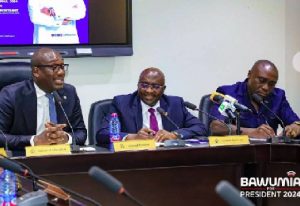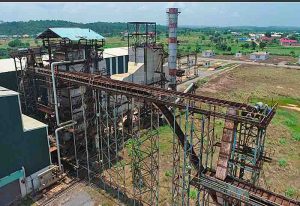The bidding process for the construction of the first batch of 20 mini-grids with financing support of $28.49 million from the African Development Bank (AfDB) project for Ghana is set for September 2023.
“The project team is preparing bidding documents for the first batch of 20 mini-grids, which are expected to be issued by September 2023,” Eyerusalem Fasika, AfDB Country Manager for Ghana said.
Ms Fasika said the Bank had also established an implementation unit and approved a
work plan for 2023.
This development comes in respect of the signing of the financing agreement between the government of Ghana, the African Development Fund (ADF), and the government of Switzerland last year.
The overall project cost is estimated at $85.88 million, comprising the mini-grid component – $ 40.29 million, and a $44.89 million net metering component.
The Ghana government would provide a counterpart funding of $ 16 million, with $14 million from the Swiss government, and $27.39 million from ADF, in addition to the $28.49 from AfDB.
The announcement of the bidding process comes after the approval in April 2023 of the $28.49 grant under the Scaling-up Renewable Energy Project (SREP), expected to increase Ghana’s renewable energy use by 10 per cent by 2030.
The 20 mini-grids formed part of 35 mini-grids and stand-alone solar PV systems expected to have an
annual electricity output of renewable energy is estimated at 111,361MWh, corresponding to an installed capacity of 67.5MW.
It would benefit 400 schools, 200 health centres, 750 Small and Medium-sized Enterprises (SMEs) and 100 communities in the Volta Lake region and Northern region of Ghana.
Through this project, AfDB would be promoting the reduction of greenhouse gas emissions on the continent, lighting up and powering Africa as part of its High five priority objectives for enhancing the continent’s socioeconomic development.
This is because the project would mitigate greenhouse emissions of 0.7795 million tons of CO2 equivalent per year.
About 2,865 jobs are to be created during construction, of which 30 per cent would target women and youth.
It aligns with the Ghana Covid-19 Alleviation and Revitalisation of Enterprises Support (Ghana
CARES) programme, which identifies the energy sector as an enabler of economic transformation.
During the signing of the agreement last year, Mr Ken Ofori-Atta, Minister of Finance said the pact marked an important milestone for providing climate-conscious development across the country.
“It is truly important and significant for us as we move toward net zero,” Mr Ofori-Atta added.
Dr Akinwumi Ayodeji Adesina, President of AfDB also said: “The Bank supports Ghana’s efforts in building resilience to the socio-economic impacts of the COVID-19 pandemic by providing electricity to health care centres, schools and island communities, currently without access to electricity services, thus enabling refrigeration of vaccines and testing facilities in these communities.”
For his part, the AfDB governor for Switzerland, Mr Dominique Paravicini said: “We hope that, together, this project will bring sustainable and affordable electricity to over 6,000 small and
medium-sized enterprises and almost 5,000 households, besides
1,100 public buildings.”




